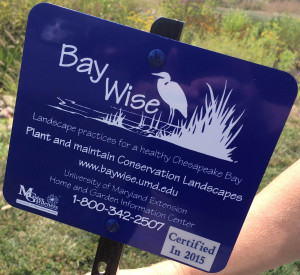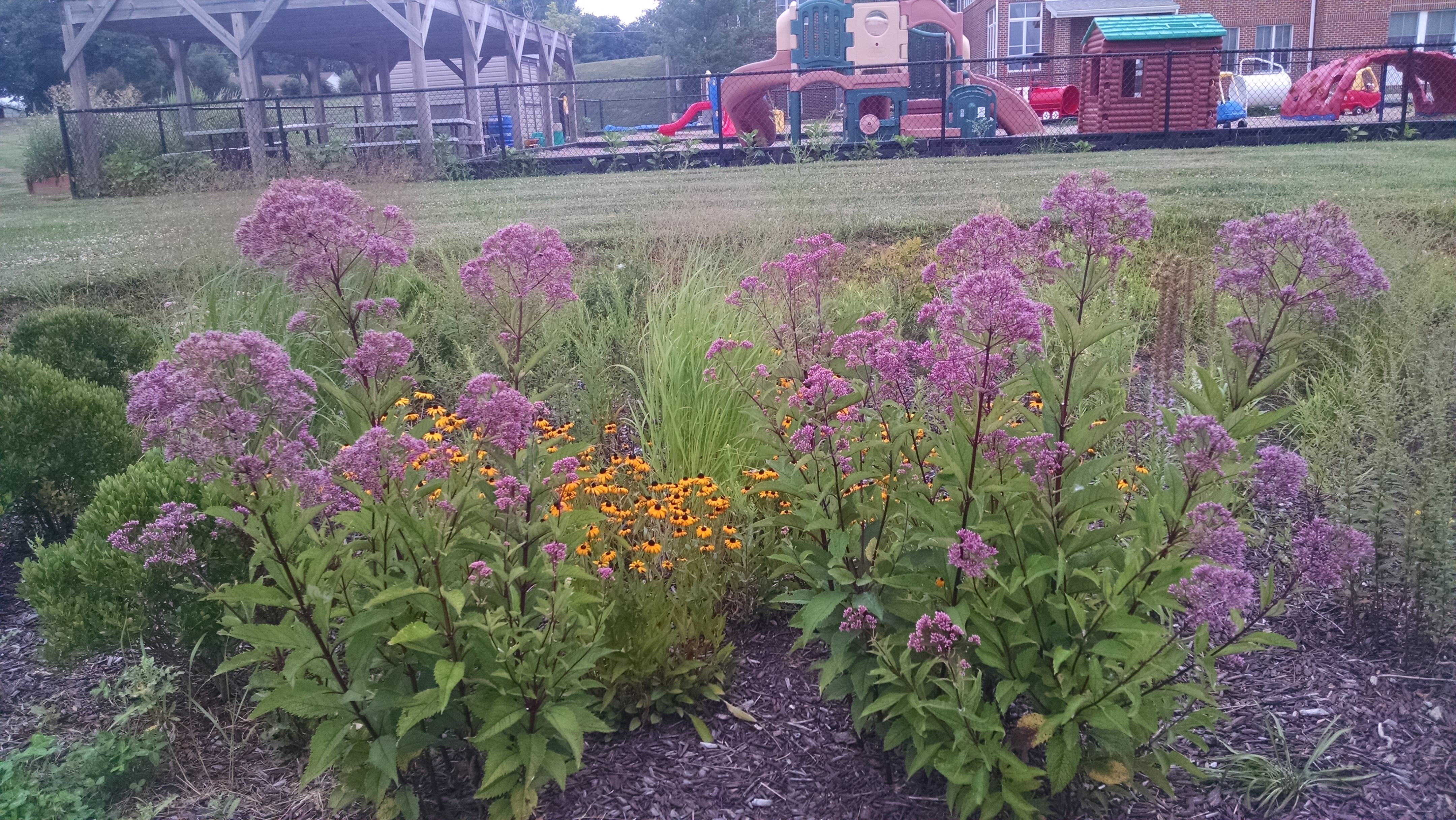The St. James Rain Garden has been certified by the Carroll County Baywise Master Gardeners. On Tuesday, September 1, three representatives from the Baywise Master Gardeners met with Liz Peterson to evaluate how well the rain garden and its implementation matches the goals of the Bay Wise Master Gardeners. This program is administered by the University of Maryland Extension Home and Garden as a means to encourage environmentally sound practices on Bay area properties.
The following criteria are among those used to determine if a project is worthy of certification:
• control storm-water runoff by planting a rain garden, directing down spouts into the soil and mulching trees, shrubs and ground-covers.
• encourage wildlife (includes incorporating landscape butterfly larva host plants, such as white turtle-head for the Baltimore checker-spot butterfly and milkweed for the monarch butterfly), native cardinal flower, Joe-Pye weed, native asters and goldenrod)
• manage yard pests with integrated pest management: includes identifying beneficial insects which naturally control pests, hand picking weeds and pests, removing plant debris and diseased plants to prevent the spread of disease, no use of toxic pesticides
• mulch no more than a 2 to 3 inch layer of organic mulch (preferably pine bark) over the roots of trees, shrubs and planting beds (deeper mulch can prevent water from filtering down to the roots) and recycle yard waste,
• fertilize wisely: we do not fertilize,
• plant wisely: plant only native plants and a variety of plants to attract beneficial insects and bird species. Provides habitat and nectar and pollen sources for these beneficial organisms.
Having met these criteria, St. James received a certificate for display in the parish and a sign to be posted in the garden.
The Bay Wise Maryland is open to all Maryland residents. You are encouraged to see if your yard qualifies by visiting www.hgic.umd.edu or calling 1-800-342-2507.
“What we do to maintain our own landscapes can affect the health of our local waterways, the Chesapeake Bay and our environment”


